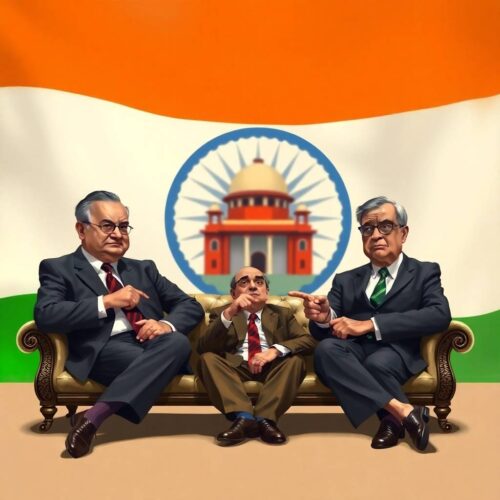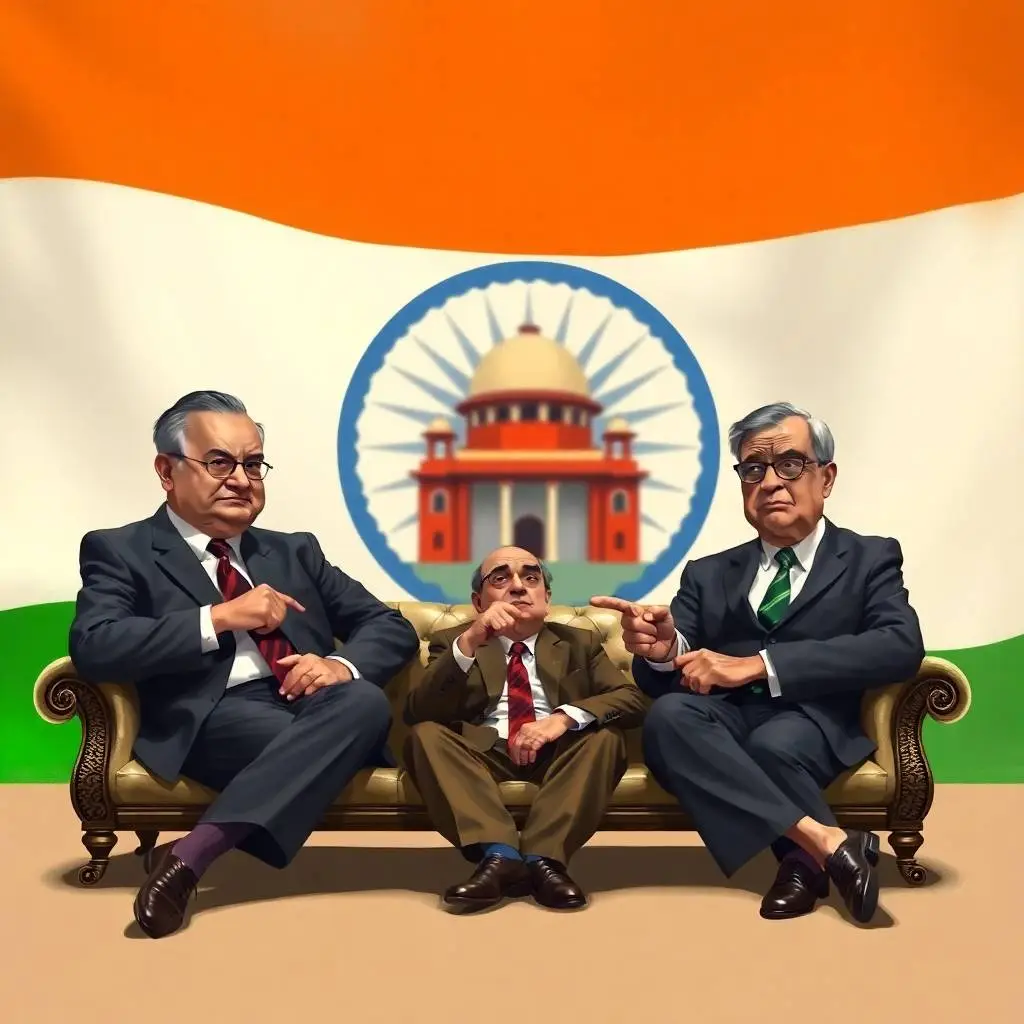
In a bombshell revelation that shakes the foundations of India’s independence narrative, retired officers of the Central Bureau of Investigation (CBI) have declared that people are unaware India is under control of corrupt bureaucrats. These seasoned investigators, drawing on decades of experience, allege that a shadowy bureaucratic elite wields power using tactics eerily similar to those of British colonial rulers, keeping citizens in the dark while stifling the nation’s progress. Their bold claims demand urgent attention: Is India truly free, or is it trapped in a modern version of colonial domination?
The CBI, India’s premier agency for combating corruption, is meant to protect the nation’s integrity. Yet, these retired officers assert that the very system they served is riddled with corruption, undermining India’s aspirations. Their explosive allegations spark a pressing question: Are Indians unknowingly governed by a bureaucratic machine that prioritizes power over people?
People Unaware India Under Control: A Bureaucratic Stranglehold
The retired officers’ warnings are as alarming as they are provocative. They claim that corrupt bureaucrats operate much like British colonial administrators, using intricate regulations and gatekeeping tactics to maintain an iron grip on power. This, they argue, creates a system where people are unaware India is under control of a select few who exploit their positions for personal gain, leaving the public to navigate a labyrinth of red tape.
One former officer, speaking anonymously to protect their safety, described the situation as a “hidden bureaucratic empire.” They pointed to practices like deliberate delays in approvals, opaque policy decisions, and demands for bribes—tactics they say mirror the British Raj’s methods of control. These strategies, the officers warn, keep citizens oblivious to the extent of bureaucratic dominance, limiting their access to justice and opportunities.
This raises a chilling question: Is India’s bureaucratic system, designed to serve the public, instead perpetuating a form of control that echoes the colonial past? The officers’ claims demand a closer look at the forces shaping India’s governance.
Is India’s Independence a Facade?
The assertion that people are unaware India is under control strikes at the heart of the nation’s independence. While India celebrates its freedom since 1947, the retired officers argue that true independence requires more than political sovereignty—it demands a system free from systemic corruption. They warn that the unchecked power of corrupt bureaucrats undermines this vision, creating a governance gap that betrays the nation’s democratic ideals.
The CBI’s ability to tackle high-level corruption is reportedly hamstrung by bureaucratic interference. Regulations like Section 17A of the Prevention of Corruption Act, which mandates prior approval to investigate senior officials, are cited as shields for the corrupt. Despite the Supreme Court’s 2014 ruling against similar provisions, the officers claim new barriers continue to protect those in power. This prompts a critical question: If the CBI, India’s top investigative body, is restrained, who is truly running the country?
Corruption Stalling India’s Rise
India’s ambitions to become a global powerhouse are no secret, but the retired officers warn that corrupt bureaucrats are a major roadblock. They point to rampant mismanagement of public funds, from infrastructure projects to welfare schemes. A 2012 report by the Political and Economic Risk Consultancy branded India’s bureaucracy as Asia’s least efficient, with corruption at its core.
Take the Mahatma Gandhi National Rural Employment Guarantee Act (MGNREGA), a program meant to empower rural communities. Reports of funds being siphoned off by corrupt officials have left projects unfinished and workers unpaid. High-profile scandals, like the 2010 Commonwealth Games fiasco, further expose how bureaucratic greed derails progress. The officers warn that such corruption not only drains resources but also shatters public trust, trapping India in a cycle of stagnation.
Hiding the Truth from the Masses
Perhaps the most disturbing claim is that corrupt bureaucrats work to ensure people are unaware India is under control. Much like the British, who used propaganda and restricted information to maintain power, some bureaucrats allegedly rely on opacity to conceal their actions. The CBI’s exemption from the Right to Information Act limits public scrutiny, leaving citizens in the dark about its operations.
Moreover, honest officials who challenge corruption often face swift transfers or retaliation. Stories of upright bureaucrats, like those reassigned multiple times for exposing malpractices, reveal a system that punishes integrity. These accounts raise urgent questions: How are such practices allowed to persist, and why are citizens unaware of the forces controlling their nation?
A Wake-Up Call for India
The retired CBI officers’ warnings are a clarion call for action. Their allegations are not an attack on India’s spirit but a demand for accountability and reform. They urge citizens, leaders, and policymakers to confront the reality of bureaucratic corruption and its impact on the nation’s future. By dismantling systemic barriers and fostering transparency, India can reclaim its path to true independence.
As the nation strives for global leadership, one question looms large: Can India break free from the grip of corrupt bureaucrats to build a governance system that truly serves its people? The retired officers’ bold claims ignite a national conversation about freedom, accountability, and the urgent need for change.

















